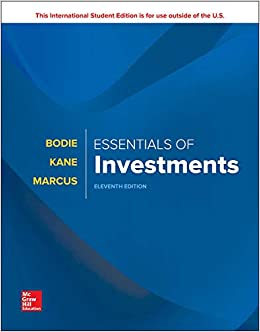Question
The academic debate on these issues goes back to Modigliani/Miller (1958, 1963) who has shown that changes in the firm's financial policy do not affect
The academic debate on these issues goes back to Modigliani/Miller (1958, 1963) who has shown that changes in the firm's financial policy do not affect its value if shareholders can replicate or reverse these decisions at zero cost. Since hedging policies are equivalent to general changes in the firm's financial structure, they also fail to enhance firm value as long as the basic assumptions of Modigliani- Miller are met. In the presence of market imperfections, reducing the firm's performance volatility can increase the net cash flows accruing to shareholders either directly, by generating tax or transaction cost savings, or indirectly, by improving the contractual relations with company stakeholders. Corporate hedging can also help to reduce the firm's cost of capital which raises the present value of futurenet cash flow(inflow+outflow)streams. For corporate hedging to make sense, it must however further hold that it is the least costly way of obtaining these value increases.
Required:
- critically evaluate why all shareholders benefit from corporate risk management activities independent of their attitudes towards risk.
- why do shareholders have an incentive to delegate risk management activities to the firm's management rather than to treat it as part of their personal portfolio optimization problem
Step by Step Solution
There are 3 Steps involved in it
Step: 1

Get Instant Access to Expert-Tailored Solutions
See step-by-step solutions with expert insights and AI powered tools for academic success
Step: 2

Step: 3

Ace Your Homework with AI
Get the answers you need in no time with our AI-driven, step-by-step assistance
Get Started


